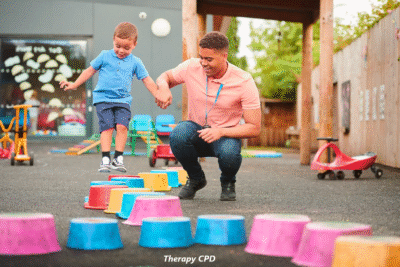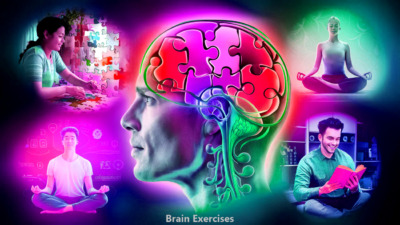Key Takeaways
- Discover practical strategies to maintain mental wellness in a hectic lifestyle.
- Learn about the significance of balancing work and personal life.
- Understand the role of physical activity in boosting mental health.
Table of Contents
- Introduction to Mental Wellness
- Recognizing Common Stressors
- The Power of a Balanced Routine
- Mindfulness as a Daily Practice
- Importance of Physical Activity
- Utilizing Technology for Mental Health
- Building a Support System
- Seeking Professional Help
Introduction to Mental Wellness
Mental health is a condition of well-being that allows people to face life’s obstacles, reach their full potential, and make important contributions to their communities. It extends beyond the absence of mental disease to include emotional balance, resilience, and the capacity to manage stress efficiently.
Mental wellness involves maintaining positive relationships, finding purpose in daily activities, and adapting to change. The World Health Organization emphasizes that mental wellness is crucial for overall health and productivity, affecting how we think, feel, and interact with others.
Maintaining mental wellness can be challenging in today’s fast-paced world. However, various strategies can help individuals navigate stress and improve their mental state. These include practicing mindfulness, engaging in regular physical activity, and seeking professional support. Citron Hennessey Therapy offers psychotherapists in New York who can provide guidance and tools for enhancing mental wellness. By prioritizing mental well-being, individuals can build resilience, improve their quality of life, and better manage the demands of modern living.
Related: Powerful Daily Routine Examples for a Healthier Life
Recognizing Common Stressors
Stress is unavoidable, and recognizing its sources is the first step toward effective management. In our modern era, everyday stressors include work deadlines, the persistent demands of technology, and social expectations that can weigh heavily on one’s psyche. The ability to identify these stressors is crucial in tackling them head-on. If left unaddressed, persistent stress can be a precursor to a variety of mental health issues, including anxiety and depression.
Awareness of your stress triggers—whether they stem from professional pressures, personal relationships, or financial concerns—can empower you to implement targeted strategies that mitigate their effects. Awareness is a powerful tool, leading to more mindful decision-making and healthier coping mechanisms.
The Power of a Balanced Routine

Establishing a balanced routine is integral to maintaining mental wellness. With the dual demands of work and personal life, prioritizing and time management have become essential skills. A structured routine helps to alleviate stress by providing a clear framework for daily activities, allowing you to allocate time effectively for both productivity and relaxation.
Creating balance involves setting clear boundaries between work and leisure. This might mean designing certain hours for work-related tasks and setting aside regular intervals for personal growth activities, recreation, or relaxation. By ensuring that neither aspect of your life overshadows the other, you cultivate a more satisfying and stress-free lifestyle.
Mindfulness as a Daily Practice
Mindfulness, the practice of being present and fully immersed in the current moment, has attracted considerable interest due to its significant mental health advantages. Integrating mindfulness into everyday life can boost awareness, reduce stress, and stabilize your emotional well-being—straightforward activities like guided meditation, deep-breathing techniques, or mindful walking can effectively promote mindfulness.
Adopting mindfulness doesn’t necessitate lengthy periods; even a few minutes each day can bring about change. Think about beginning your day with a brief meditation or a thoughtful consideration of the day’s happenings. Gradually, these small acts of mindfulness can enhance resilience and nurture a sense of tranquility amid life’s turmoil.
Importance of Physical Activity
Engaging in physical activity is fundamental for promoting mental health, providing a natural way to boost mood and alleviate stress and anxiety. Regular exercise elevates endorphin levels, neurotransmitters in the brain that act as natural mood lifters. Routines such as yoga, running, weight lifting, or brisk walking can profoundly affect mental health, improving overall well-being and emotional balance.
Incorporating physical activities into daily life enhances physical health and substantially alleviates symptoms of depression and anxiety. Engaging in physical activities is a preventive and therapeutic measure, prioritizing mental health in one’s life.
Utilizing Technology for Mental Health

While technology provides us with unprecedented resources for mental health, such as apps and online support groups, it can also become a significant source of stress. A digital detox, which includes taking periodic breaks from digital devices, can help reset your mental state, allowing you to reconnect with yourself away from screen-induced distractions.
A digital detox involves unplugging social media, email, and constant notifications and gradually focusing on offline activities that promote well-being and foster deeper human connections. Whether it’s a weekend retreat without your smartphone or an hour each evening spent away from screens, a deliberate break from technology can refresh your mind and spirit.
Related: How exercise prevents the brain from shrinking?
Building a Support System
A solid support network can serve as an essential source of help, providing motivation and empathy during mental health struggles. Creating a circle of caring family, friends, and coworkers fosters a space where discussions about mental well-being are encouraged. Collective experiences and reciprocal support within a reliable group can offer comfort and understanding, aiding in reducing feelings of loneliness or hopelessness.
Encourage regular communication within your support network through in-person meetings, video chats, or phone calls. Many find the strength and resources to maintain mental wellness and confidently navigate life’s various challenges within these connections.
Seeking Professional Help
There are times when professional help is necessary to navigate mental health struggles effectively. Consulting with trained therapists and counselors can provide fresh perspectives and tailored strategies for mental health improvement, ensuring that you receive personalized care and support.
Seeking professional therapy should be viewed as a vital part of maintaining mental wellness rather than just a last option. When you feel prepared to make this move, look for professionals who recognize your situation and possess the skills to help you navigate it. A therapeutic relationship with a qualified expert can promote substantial growth, enhance self-awareness, and provide mental health advantages.








